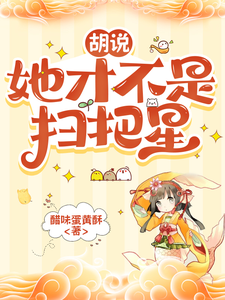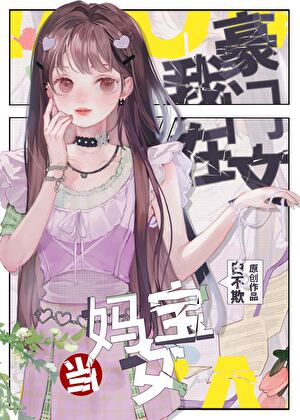Shen Miao stood there watching them walk away before turning back to clean up the bowls left behind by the soldiers who had finished their meals.
The drill instructor stared thoughtfully at his empty noodle bowl for a moment, then unexpectedly pulled out a small piece of silver and placed it on the table. "Keep the change," he said before calling his rowdy subordinates to leave.
Shen Miao’s initially startled heart was instantly soothed by that tiny piece of silver.
Someone actually paid with silver!
She weighed it in her hand—it had to be at least one tael, which was nearly a string of cash! Her instant noodles with egg and meat sold for eighteen coins per bowl, and this small piece of silver could buy over fifty bowls.
Quickly tucking it into her pocket, she beamed, her eyes curving into crescent moons, and enthusiastically saw them off at the door. "Gentlemen, come again next time! I have many more delicious noodle dishes you must try!"
Her sudden change in attitude made the middle-aged man glance back at her as he mounted his horse.
Unfazed, Shen Miao waved her handkerchief cheerfully. "Ride safely, gentlemen! Have a smooth journey!"
The only reply was the dust kicked up by their horses’ hooves.
Humming a tune, Shen Miao returned to wash the dishes.
After sending off a few more customers, she took out the money jar to tally the morning’s earnings.
Her shop currently offered two types of soup and six kinds of noodles.
The most expensive were lamb soup at thirty coins per bowl and lamb noodles at thirty-five coins.
Plain instant noodles cost twelve coins, while the version with meat and egg was eighteen.
Fried sauce noodles and steamed noodles were twelve coins each; mixed vegetable noodles were fifteen.
Plain dough-drop soup was fifteen coins, while the meat version was eighteen.
The cheapest was pork bone clear noodles at ten coins.
By noon, she had sold twenty-five bowls of instant noodles (450 coins), eight bowls of lamb soup (240 coins), three bowls of lamb noodles (105 coins), sixteen bowls of fried sauce noodles (192 coins), and ten bowls of pork bone noodles (100 coins). Excluding the drill instructor’s extra payment, her revenue was already close to a full string of cash.
Additionally, Sister Xiang had sold twenty-five baskets of steamed buns, forty red bean bread rolls, and assorted other buns and mantou in the morning, earning another string of cash.
In half a day, they had made over two strings—enough to break even.
Starting tomorrow, she decided to focus more on the steamed buns and red bean rolls, cutting back on less popular varieties.
Shen Miao hadn’t expected her so-called "Lin’an Steamed Buns"—borrowing the name of Hangzhou’s famous xiaolongbao—to become the bestseller on the shop’s opening day. The twenty-five baskets sold out almost instantly. When Sister Xiang bounced in asking if there were any left, Shen Miao was stunned. She had assumed the red bean rolls or the affordable, uniquely stuffed radish-and-shrimp buns would outsell them, but instead, it was the "ordinary" steamed buns that took the lead.
Honestly, these buns were just smaller versions of meat-stuffed mantou.
Bianjing had no shortage of shops selling meat buns—within a short walk from her place, there were four or five stores specializing in "mantou," all offering meat-filled versions at cheaper prices, usually five coins for a large one.
Shen Miao’s steamed buns came eight to a basket, each seemingly thin-skinned and generously stuffed, but the actual cost per bun was likely lower than the competitors’ larger ones. After all, being so small, they couldn’t hold much filling no matter how plump they looked.
Plus, making these buns was far easier than other varieties—no kneading or rolling required. Just stir flour into a shaggy dough with chopsticks, let it rest, and it was ready. For the filling, half a pound of minced pork was stir-fried with sweet sauce, soy sauce, star anise, and cinnamon, then mixed with raw minced meat, garlic, and scallions. One pound each of meat and flour yielded forty-eight buns—six full baskets.
A more unscrupulous vendor might use days-old leftover meat, masking its staleness with extra garlic and scallions. The heavy seasoning would make it impossible to detect, allowing them to produce seven or eight baskets at minimal cost.
But Shen Miao refused to cut corners. Deep down, she wanted to make food that was delicious, wholesome, and profitable—not something that sacrificed integrity for profit. Earning a few coins less per basket was worth the peace of mind, and she believed honesty was the key to lasting business.
The same principle applied to the meat toppings for her noodles. She never bought leftover scraps from Butcher Zheng, instead selecting well-marbled pork belly—fatty yet not greasy—for both the buns and noodle toppings.
As the sun climbed higher, noon approached.
The flow of customers dwindled. Perhaps Bianjing’s carb-heavy diet left everyone drowsy—by midday, the streets emptied as shops’ owners and workers dozed off wherever they could, a true testament to the post-carb slump.
Ji Brother and Sister Xiang had also fallen asleep, leaving the place quiet. Shen Miao, never one for naps, found herself restless with nothing to do.
She swept the floor, cleaned the stove, washed another batch of bowls, and then, noticing the good sunlight, decided to bathe the two household dogs.
The drowsy dogs—one unnamed and the other named Lei Ting—stood stupefied as Shen Miao scrubbed them head to toe with a loofah, even trimming their paw fur and nails afterward.
With no more chores left, she reluctantly took a short nap. Even in her past life, she had been energetic—while others needed eight hours of sleep, five were enough to keep her running like a perpetual motion machine.
Her grandfather used to joke that tiring her out required two energy drinks, as she’d had boundless stamina since childhood.
Others might see her busy life as exhausting, but she thrived on it. Doing what she loved made the work feel rewarding rather than draining.
Sometimes, idleness left her uneasy.
After her nap, with dinner still hours away, Ji Brother excused himself to read at Lanxin Bookstore. Shen Miao was pleased—even before the exam results were out, he had already cultivated a daily reading habit, which would surely benefit him later.
Sister Xiang, the morning snack vendor, had also clocked out. With the two coins Shen Miao paid her as "wages," she eagerly dragged the unnamed puppy to find Li Gou’er, planning to stroll and buy sweets.
Since Shen Miao hadn’t settled on a name for the little dog, Sister Xiang kept calling it "doggy," much to Aunt Li’s annoyance—she suspected Shen Miao was making some kind of veiled insult.
A few days ago, she had angrily wrapped up a bundle of sesame seeds and a bag of salt and gone to the private school where Li Gou'er studied, asking the old teacher with a goat-like beard to give her Li Gou'er a proper formal name.
Now, Li Gou'er had been renamed Li Bo, but the new name didn’t stick—everyone still habitually called him Li Gou'er.
Aunt Gu had quietly come to her yesterday and mentioned that Aunt Li had complained several times to the neighbors, indignantly saying that since the exam results hadn’t even been released yet, Ji Brother might not necessarily pass the entrance exam for the Biyong Academy. How could Shen Miao, after stumbling into some sudden wealth and opening a shop, suddenly act so high and mighty? And to make such a fuss over her son’s name—utterly despicable!
Shen Miao was truly wronged. She hadn’t deliberately named her dog to match Li Gou'er’s name… So now she was racking her brains trying to come up with a better name for the dog to avoid further misunderstandings.
But the petty squabbles among the adults didn’t affect the friendship between Li Gou'er and Sister Xiang. As a child, Li Gou'er had been weak and frail, so Aunt Li had watched over him like a precious jewel—forbidding him from fishing in the river, wandering the alleys, or climbing trees to steal bird eggs. Later, he was confined to studying. Only Sister Xiang never minded his bookish frailty, often playing house with him in the courtyard, so the two grew very close.
Since Sister Xiang had returned to live here, Li Gou'er had become the happiest person in the entire alley. Taking advantage of Shen Miao’s busyness, he would often sneak to the back gate to find Sister Xiang, even gifting her two rough porcelain dolls made by his father, Li Tiaozi. The dolls were nested, with a smaller one inside—crude yet delicate in their own way. They now sat on Sister Xiang’s windowsill.
Though Aunt Li grumbled disapprovingly several times, Li Gou'er didn’t mind that Sister Xiang’s dog shared his name. After all, Sister Xiang had once solemnly announced to him: This dog was her little brother—she finally got to be an older sister!
Now, in the Shen household, Shen Miao was the eldest, followed by Shen Ji, then Lei Ting (who was eight), then Sister Xiang, and finally the puppy.
So Li Gou'er had earnestly discussed with Sister Xiang: "Since he’s your brother, then how about this—he’s your dog brother, so naturally he’s also my sworn dog brother. From now on, I’ll be Big Gou'er, and he’ll be Second Gou'er. That way, when you call ‘Gou'er,’ we won’t both answer at once!"
Shen Xiang immediately shook her head. "Shen Second Gou sounds awful."
Li Gou'er grew anxious. "Awful? How is it awful? Do you think my name is awful too?"
Sister Xiang silently looked at him, her expression indescribable. The child was amusing—round-faced, squinting, wearing a look that seemed to say, "You really need me to spell it out for you? Isn’t it obvious?" Shen Miao, who happened to be nearby picking vegetables, nearly choked on her own saliva from stifling a laugh.
As Shen Miao wiped the table, she found herself smiling at these trivial little matters. Life really could be quite amusing. She had been too busy before—opening branch shops, participating in competitions, inspecting new ingredient suppliers—it was as if she had forgotten that life was meant to be like this. Whether good or bad, these small moments were like the seasonings of oil, salt, vinegar, and tea, adding different flavors to everyday existence.
Sweet, sour, bitter, spicy, salty—life was meant to be a full spectrum of flavors. No matter what came her way, Shen Miao was determined to embrace it all with acceptance and joy.
After wiping the table, Shen Miao stretched and headed to the backyard to water the vegetable patch and feed the chickens. But just as she stepped out, a weary, timid voice called from the entrance: "Is anyone here?"
"Yes, yes!"
Shen Miao hurriedly pushed aside the kitchen curtain and looked out. Coincidentally, it was the same hunched, elderly woman she had seen that morning—her appearance weathered, yet her clothes neatly kept. Her graying hair was tied back with a flat wooden pin and wrapped in a cotton cloth printed with peony patterns, not a strand out of place.
She still held tightly to the simple-minded girl beside her, who followed her mother like a fledgling bird easily startled outside its nest.
The old woman seemed accustomed to the odd glances of others. She didn’t react to Shen Miao’s momentary silence but also didn’t sit down immediately. Instead, she first glanced around at the shop’s furnishings, then studied the clean floor tiles and tables. Finally, she looked up in confusion at the menu posted on the wall. This shop was strange—no eager waiter came forward to recite the dishes, and the menu was displayed like this.
Could it be that only scholars came here? The woman regretted entering. She had only stepped in because the shop’s sign looked old and the entrance modest, thinking the prices might not be too steep.
But since she was already here… She couldn’t read, so the menu was useless to her. Hesitantly, she asked, "Madam shopkeeper… do you… do you sell plain noodle soup for four coins a bowl? Just one bowl is enough—extra broth would be fine too."
Shen Miao snapped out of her thoughts and set two cups of water in front of them. "We do. Please sit and have some water first—it’ll be ready soon."
Relieved, the old woman led her daughter to the most inconspicuous corner table. Once seated, she busied herself tucking a handkerchief into the girl’s collar and rolling up her sleeves. The girl let her mother fuss over her, occasionally giggling foolishly.
The old woman then gently brushed stray hairs from her daughter’s face.
Perhaps because her daughter couldn’t speak well, the woman had grown accustomed to silence. The two waited quietly.
Shen Miao’s shop did serve plain noodles, but her version was modeled after Jiangnan’s "Yangchun noodles," relying entirely on the broth—which wasn’t exactly cheap to make.
Why was a simple, broth-based noodle dish from Gaoyou, Yangzhou, and Shanghai called "Yangchun" (Spring Sunshine)? In the Jiangnan region, the tenth month of the lunar calendar was poetically referred to as "Little Yangchun," and over time, "ten" became associated with "Yangchun." Thus, in Yangzhou and elsewhere, these noodles sold for ten coins a bowl—hence the name.
So Shen Miao’s clear pork-bone noodle soup was also priced at ten coins. Especially since she sifted coarse flour for her noodles and used quality meat, the price was justified.
Besides… even in prosperous Jiangnan, four-coin noodles were hard to find. Maybe in the cheap taverns near the city outskirts.
Were they outsiders who had come to the capital? Shen Miao wondered, stealing glances at them as she worked.
The old woman pulled a small porcelain vial from her cloth bag, shook out a few tiny pills, and swallowed them with the water Shen Miao had provided.
After taking her own medicine, she rummaged for another vial, poured a few pills into her palm, and patiently coaxed her daughter: "Yu’er, be good and take your medicine. After this, Mama will buy you sugar cake, alright?"
But the girl recoiled as if facing a monster, shaking her head frantically. "No… no…"
"Take your medicine, and Ah-Niang will take you to get some malt sugar, alright? Do you remember? The kind that always goes 'ding-dang, ding-dang'."
The little girl hesitated before reluctantly swallowing the medicine, her uniquely expressive face scrunching up in distaste.
Shen Miao quietly averted her gaze, using chopsticks to scoop out two portions of cooked noodles and a few slices of Chinese cabbage from the pot. Amidst the rising steam, she turned to ladle a spoonful of pork bone broth as the base for the simple noodle soup. She then arranged the cabbage on top, added an extra spoonful of minced meat topping, sprinkled chopped scallions, and drizzled a few drops of scallion oil—completing the fragrant, clear broth noodles.
Next, she fetched an extra bowl from the cupboard.
She piled both portions into one large bowl and carried it out with a warm smile. "Sorry for the wait—your noodles are ready. They’re just off the stove, so they’re piping hot. I’ve brought an extra bowl so you can portion them out."
The elderly woman, however, flustered at the sight of the overflowing bowl, hastily grabbed Shen Miao’s sleeve as she turned to leave. "Oh dear, Mistress, why so much? I only asked for a plain bowl of noodles, nothing else. And you’ve even added meat! My daughter and I came to the city looking for work—we must scrimp on every bite. We truly don’t have enough coins for this..."
Shen Miao quickly reassured her with a smile. "This isn’t a forced sale, don’t worry. You’ve come at just the right time—today’s my first day open, and you’re my very first noon customer. There’s a rule in my household: the first guest gets half off. Even with the meat, it’s only four coppers."
The old woman sat down hesitantly. "Really?"
"Really."
Shen Miao gently freed her sleeve from the woman’s gnarled grip and gestured toward the kitchen. "Take your time. I’ll be inside if you need anything."
"Ah... ah..." The woman settled uneasily, her dazed gaze lingering on the large bowl. After a long pause, she tremblingly picked up her chopsticks, carefully dividing most of the noodles into her daughter’s bowl and meticulously transferring every piece of meat into it.
Shen Miao returned to the kitchen to clean the counter and scrub the pot, though she couldn’t resist stealing glances at them.
The girl struggled with chopsticks, so the old woman used a spoon to break the noodles into smaller bits, letting her scoop them up. Only after seeing her daughter eat heartily did she begin on her own bowl—mostly broth with a few remaining strands.
Shen Miao watched as the woman took a bite, paused as if surprised, then gradually devoured the rest with ravenous haste, even draining the broth to the last drop.
With a faint smile, Shen Miao lowered her head to knead dough again.
In this era, there were no prenatal checkups, no concept of conditions like "sugar babies" (diabetes). Children born with special needs weren’t their mothers’ fault. And yet... many, due to severe congenital conditions—deafness, intellectual disabilities, heart defects, digestive deformities—wouldn’t survive past a few years. Even those who did were often abandoned or smothered by their clans or elders. In ancient times, even in this prosperous Song Dynasty, it was rare to see such children among commoners, let alone a grown woman.
In this son-preferring world, this old woman had somehow raised her daughter to adulthood.
She hadn’t known she’d bear a child with disabilities. Yet when she learned, she never abandoned her, instead gritting her teeth to raise her. Shen Miao could scarcely imagine the sacrifices—the battles against outsiders, even kin—to keep this girl alive against all odds.
This bowl of noodles was her tribute to that mother’s love.
She’d also hoped to ask them more after they’d eaten in peace. But the moment they finished, they bolted as if fearing Shen Miao might change her mind or demand more payment.
"Mistress, thank you. The coins are on the table."
By the time Shen Miao called out, "Wait—", the old woman was already dragging her daughter down the street, vanishing around the corner in a blink.
She sighed and turned back.
On the corner table sat two spotlessly clean bowls and four well-worn coppers, polished shiny from handling.
As expected, no other customers came by midday. In this era, lunch wasn’t yet a proper meal—few forfeited their naps to eat out. Many shops even closed half their doors to nap.
In the quiet, Shen Miao finished her chores and idly propped her chin on her hand. Sunlight streamed through the lattice window, painting warm squares across her body. Lulled by the heat, she dozed off atop the kitchen counter.
Perhaps stirred by the mother and daughter, her dreams drifted to her childhood in her past life—standing on a stool to secretly fry the ribbonfish her grandfather had just bought. Her early knack for cooking had put her leagues ahead; during these stolen feasts, she’d always been the head chef, with cousins crowding the stove, chopsticks at the ready.
The sunlight had been orange then, and so the dream was drenched in gold. They’d sat on the kitchen floor, devouring several fish, scrambling for water after the saltiness overwhelmed them, then getting an earful from their grandparents. Yet the scolded brats had only laughed harder, exchanging conspiratorial glances.
She only woke when the tapping of knuckles against the counter echoed through the shop.
Dazed, she struggled to separate dream from reality—it had been so long since she’d dreamed of her past life.
With sleep lines still crimping her cheek and her hair loosely tangled, Shen Miao pushed aside the curtain in a half-awake stumble.
To her surprise, the visitor had been peering inside to check for activity. The sudden movement made them both jerk backward, putting space between them before recognition dawned.
Before her stood Xie Qi—wearing a scholar’s headscarf and a simple, elegant robe with wide sleeves, his demeanor poised and refined... though leaning on a cane.
A glance downward revealed Yan Shu, grinning as he clung to the counter.
Shen Miao jolted fully awake. "Ninth Brother Xie?!"
"Mm. Mistress Shen, may your grand opening bring prosperity, peace, and every success." Xie Qi’s gaze flickered over the sleep marks on her face, amusement glinting in his eyes as he motioned Yan Shu forward. The boy presented a slender white porcelain vase holding sprigs of jasmine. Xie Qi took it and set it beside the wooden figurine of the God of Wealth on the counter. "The jasmine in my mother’s courtyard bloomed overnight, filling the air with fragrance. I thought them lovely, so I brought two branches to offer as congratulations."
Two branches? More like two dozen. In his quest to select the most aesthetically pleasing stems for the vase, Ninth Brother (Xie Qi) had crouched by the jasmine bushes, snipping left and right with his shears, nearly reducing the carefully tended plants of the Lady of the house to bald stumps. When the Lady awoke from her midday nap to find the ground littered with fallen petals and leaves, she flew into a rage. Snatching the Xi family’s disciplinary rod from behind the door, she stormed into the front courtyard and gave her still-drunk Third Brother a sound thrashing. Dazed and confused, Third Brother could only scurry about with his arms over his head, pleading, "Mother, I was wrong!"
Poor Third Brother, ever the scapegoat due to his reputation for frivolity.
Yan Shu scratched his head but refrained from exposing his master’s mischief.
"Ninth Brother, you’re too kind. Next time you visit, there’s no need to bring gifts. Besides, didn’t you already send Yan Shu over yesterday with congratulations? It’s unheard of to send another round! Still, your calligraphy is exquisite—it almost feels like a disservice to hang it in my humble shop. I haven’t even thanked you properly for that. And Yan Shu mentioned you were injured—why are you out and about?"
Shen Miao gestured toward the two scrolls of calligraphy on the wall and curtsied again in gratitude. As she lowered her head, her gaze caught sight of Xie Qi’s leg peeking out from his robe, wrapped in bandages and braced between two wooden splints. Concern laced her voice as she added, "Has your hand healed? That leg looks serious—you must take care. They say it takes a hundred days to mend bones and tendons. You should be resting in bed."
"My hand is fine. A couple of days of ointment did the trick," Xie Qi replied smoothly, his expression unreadable. "I only came out to change the dressing on my leg."
Yan Shu couldn’t help but mutter inwardly: Originally, the old physician from Chief Physician Zhao’s household had been summoned daily to tend to the injury at home. But today, Ninth Brother had insisted he was stifled indoors and begged the Lady’s permission to go out for a change of air—under the guise of visiting the physician himself.
And yet, here they were, at Shen’s Noodle Shop instead.
As Yan Shu pursed his lips behind Xie Qi’s back, his master was busy complimenting every detail of Shen Miao’s shop—from the lanterns hanging from the beams to the brickwork underfoot.
Xie Qi’s praise was erudite and poetic, each phrase meticulously crafted without repetition. Though not overtly effusive, his words still brought a flush to Shen Miao’s cheeks. Flustered, she interjected, "Did you two only have snacks for lunch? Are you hungry? You’ve helped me so much these days, Ninth Brother. I’ve been wanting to thank you but didn’t know how. Let me make you a bowl of noodles—how does that sound?"
Xie Qi didn’t refuse, and Yan Shu was downright delighted. The master and servant settled at the table nearest the counter as Xie Qi smiled and said, "Then we’ll trouble you, Mistress Shen."
"No trouble at all. Sit tight… Let me think—since you’re injured, you shouldn’t eat anything too heavy. It might interfere with your medicine. How about I make you a bowl of Hutang noodles?"
Xie Qi lifted his eyes to her. Shen Miao seemed unaware of her own habit—when relaxed, she would unconsciously smile, her eyes crinkling first before revealing a pair of tiny, endearing canine teeth. Unlike other women who concealed their laughter behind fans or handkerchiefs to maintain the decorum of "smiling without showing teeth," she laughed freely, her cheeks tinged pink, her eyes bright under the afternoon sun—radiant and unguarded.
It always reminded him of a single lotus swaying amidst an endless sea of emerald leaves in the midsummer gardens of the Xie family’s countryside estate.
As the sunlight slanted westward, spilling golden warmth across the street and filling the little shop, Xie Qi found himself watching her, bathed in that glow, until he too smiled softly. "Mm, we’re in your hands."
He didn’t know what Hutang noodles were. And right now, he felt oddly content in his ignorance, unwilling to ask.
Only Yan Shu, ever preoccupied with food, scurried after her curiously. "Mistress Shen, what’s Hutang noodles? I’ve never even heard of it!"
"You’ll know once I’ve made it."
With a playful wink, Shen Miao turned and disappeared into the kitchen.
Hutang noodles earned their name from their improvisational nature—traditionally, when people were poor and grain was scarce, they tossed whatever vegetables or wild greens they had into the pot. Like Geda soup, it was nutritious and easy on the stomach.
But later, when Shen Miao sampled Hutang noodles in the grand restaurants of the central plains, she found this humble dish had been elevated to an art form. No longer a haphazard concoction, the masters prepared it with painstaking care—hand-pulled noodles, millet broth from the Taihang Mountains, premium meats and vegetables, all simmered into a thick, fragrant, and nourishing bowl.
Shen Miao’s evasiveness only made Yan Shu more impatient. He tiptoed, nudged the curtain aside with his head, and perched by the counter to watch her work.
Xie Qi, too, caught sight of her bustling figure.
"Mistress Shen, your kitchen is spotless!" Yan Shu suddenly exclaimed in awe. Even the Xie family’s kitchen, under Chef Fang’s care, could descend into chaos during busy hours—dirty water puddles, scattered vegetable scraps and eggshells, haphazard piles of ingredients on the chopping block.
But Shen Miao’s kitchen was immaculate. Pots, utensils, and bowls gleamed; every condiment and ingredient for her noodles was prepped and arranged in orderly bowls. Vegetables and meats, freshly washed and chopped, sat under bamboo covers. Even the dough had been kneaded and left to rest. Surplus ingredients were neatly stored in baskets and shelves in the corner. An extra plank of wood had been nailed to the wall, fitted with pegs to hang ladles, spatulas, and knives—each tied with hemp twine.
Despite being packed with supplies, the kitchen was dust-free and meticulously organized. Even the cleaning cloths were scrubbed pristine, either hung up or folded into squares at the table’s edge—a sight that soothed the soul.
Yan Shu marveled further when he spotted the vegetable baskets. "Mistress Shen, even your radishes are stacked perfectly?"
On the wooden shelf opposite the counter sat several woven baskets, one holding white radishes, the other carrots—not only sorted by color but also arranged with their leafy tops all pointing the same direction, layered with military precision.
Shen Miao followed his gaze and chuckled. "That wasn’t me. Ji Brother did that. He helps tidy the kitchen every day. Keeping it this clean is partly about good habits—cleaning as you cook—and partly thanks to Ji Brother’s diligence. Whenever he’s home, he pitches in."
She’d grown up with strict kitchen discipline. Her father and grandfather ran kitchens where even a single stray vegetable leaf would earn a scullion a whack with a ladle.
Yan Shu nodded solemnly. "Chef Fang ought to come take a look and learn a thing or two. For a cook, he’s far too careless!"
Xie Qi leaned against the counter, his gaze lingering on Shen Miao’s hands as they swiftly chopped vegetables. Madam Shen’s hands could hardly be described as "slender as tender shoots, smooth as congealed fat." Hers were long and strong, with well-proportioned knuckles, faint blue veins that rose beneath her skin when she exerted force, and even a slight callus at the base of her thumb from years of gripping a knife.
He glanced down at his own hands. His palms bore calluses too, from martial practice and frequent injuries, but they were nothing like hers.
As he quietly admired Shen Miao’s graceful movements while she cooked noodle soup, his heart seemed to fill with the rich aroma of hearth and home. She managed two stoves at once—one for stir-frying peanuts, the other for simmering a thick broth—working with such methodical ease amid the bustle that she might as well have been a general commanding an army.
How impressive Madam Shen is, Xie Qi thought, ashamed of his own lack of domestic skills, knowing only how to read and write.
Just as he was lost in his admiration, a tall, dark-skinned figure pushed three jars of wine through the half-open gate of the Shen family’s backyard and strode familiarly into the kitchen, calling out, "Sister, where should I put the wine you ordered?"
Xie Qi turned his head calmly to look, and the burly, sun-darkened man also glanced over.
Their eyes met across the room.







